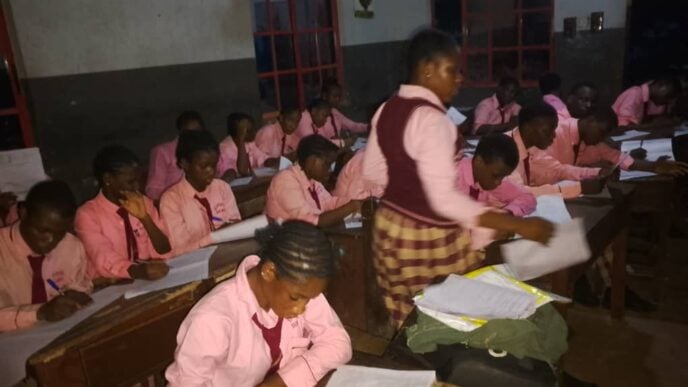NBTE executive secretary Idris Bugaje.
The federal government has announced a monthly N45,000 stipend for technical college students across the country.
Idris Bugaje, the executive secretary of the National Board for Technical Education (NBTE), spoke to journalists in Abuja on Wednesday.
He said the new policy aimed to fast-track the development of the TVET sector and expand enrollment at the sub-tertiary level.
Bugaje added that, beyond the monthly stipend, the government would also cover teaching fees and pay industry-based supervisors (known as “master class” instructors) where students undertake industrial attachments and finance the cost of skill certification.
Advertisement
“With this, young people will find it more attractive to come to a technical college, acquire skills qualifications, get jobs locally and even beyond the borders of Nigeria,” Bugaje said.
“This way, the whole sector is being repositioned. We are at the moment facing what you may call either a resurrection or a rebirth of TVET.
“During colonial days and the early part of our independence, TVET had received attention. But, since the 1980s, we have been going down the drain.
Advertisement
“That is why the number of technical colleges has dropped to 129 at the moment, compared to 15,000 senior secondary schools in Nigeria.”
Bugaje said President Bola Tinubu had allocated a N120 billion grant to support students under the new TVET initiative.
The grant, he said, would be disbursed through the Nigerian Education Loan Fund (NELFund).
“The N45,000 is not a loan, but a grant. Students who enjoy this are not going to pay back. We want to encourage more people to enrol in technical education,” he said.
Advertisement
To sustain and expand the programme, Bugaje said the minister of education is championing a legislative bill to establish a National Skills Fund under a new Nigerian Skills Qualification Framework (NSQF).
He said the bill is expected to be presented to the national assembly soon.
TheCable reported that the education ministry has been looking to relaunch its TVET scheme to drive the uptake of vocational skills.
In Nigeria, polytechnics, monotechnics, and innovation enterprise institutes are central to vocational education at the tertiary level.
Advertisement
Technical colleges, vocational enterprise institutes, skill training centres, and informal apprenticeship schemes operate at the sub-tertiary level.
The TVET drive is emphasising hands-on skills in carpentry, ICT, plumbing, construction work, agriculture, CNG vehicle conversion, and renewable energy, among other vocations believed to be in short supply of skilled manpower.
Advertisement












